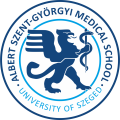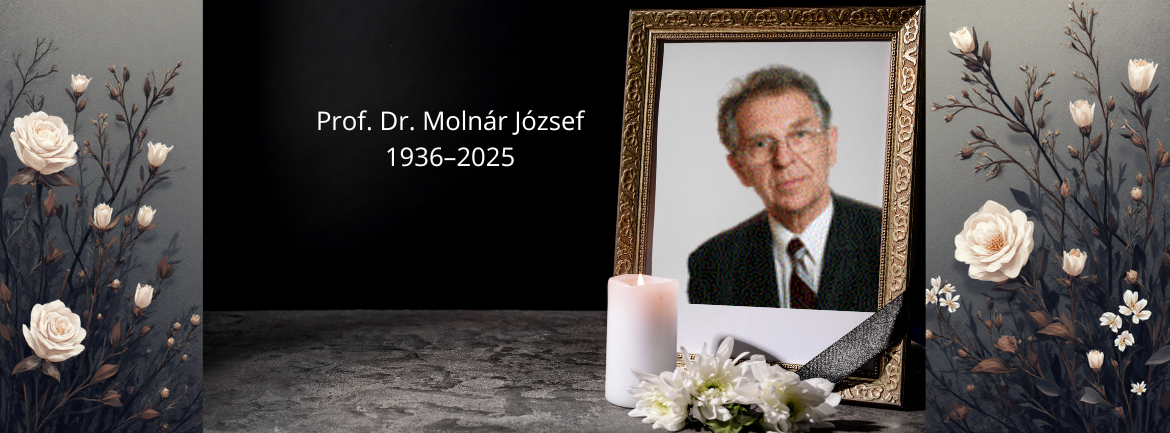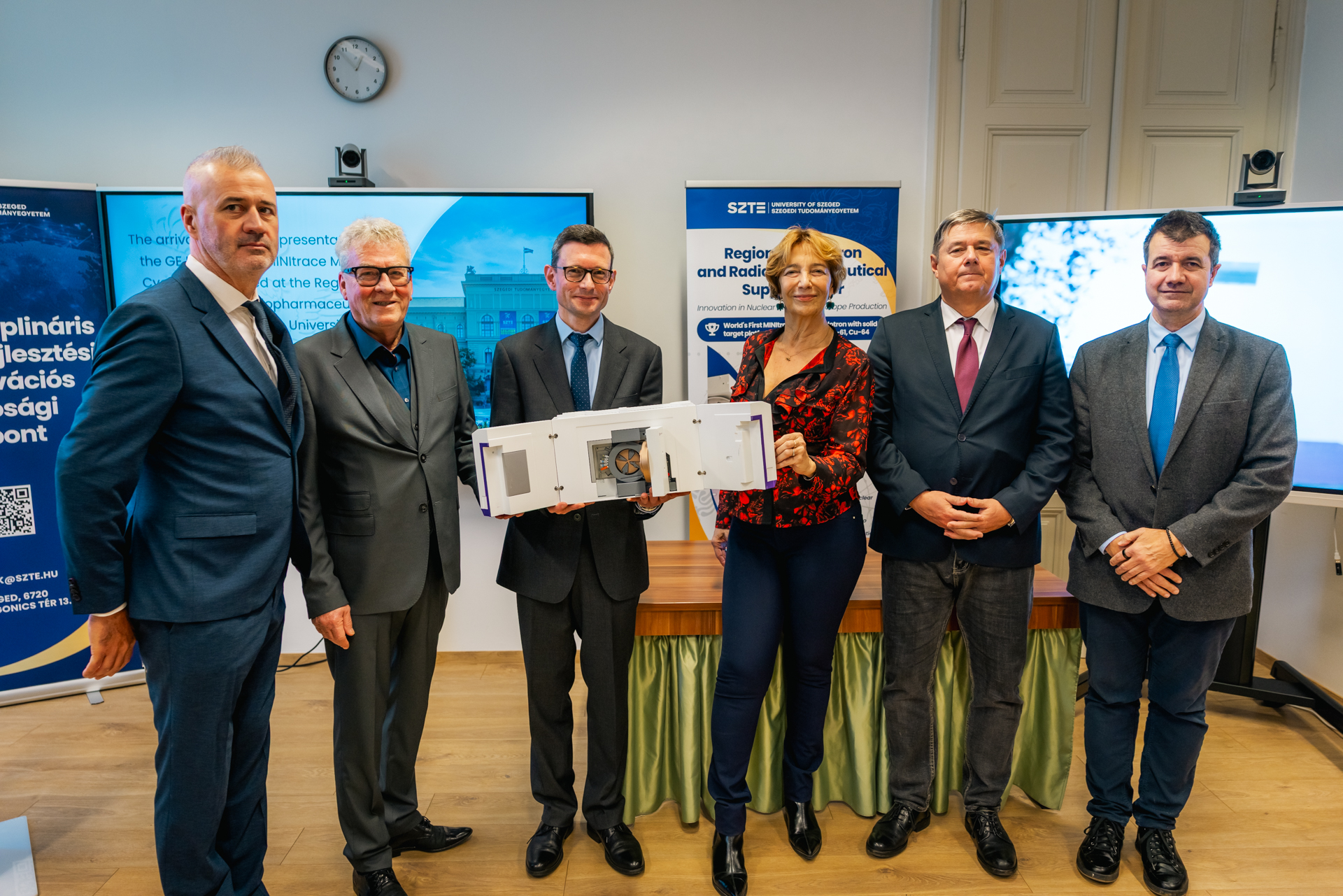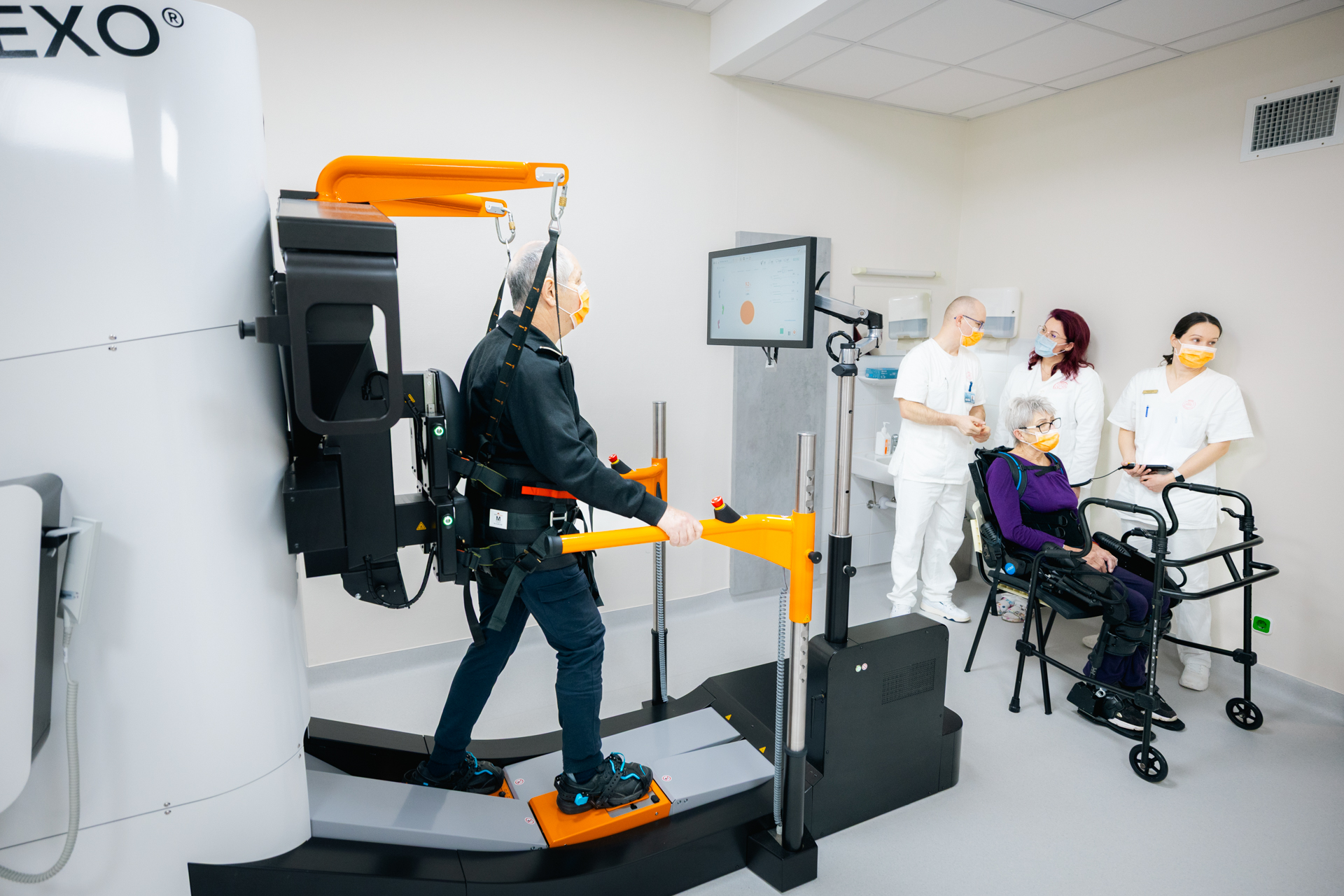University of Szeged
Albert Szent-Györgyi Medical School
Foreign Students' Secretariat
Your Education. Our Mission.
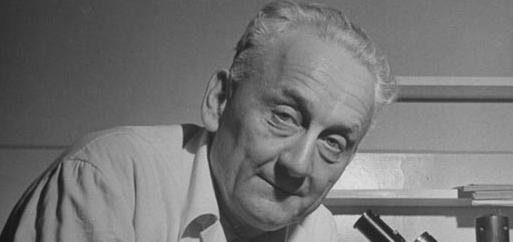
Professor Albert Szent-Györgyi and the University of Szeged
"Science has opened endless possibilities for expansion if we work together instead of snatching small advantages from one another. Science has helped us to understand and master ourselves, creating an elevated new form of human life, the wealth and beauty of which cannot be pictured today by the keenest imagination". ("Lost in the 20th Century" Albert Szent-Györgyi, Annual Review of Biochemistry, 32, 1963).
"Life is a by-product of the forces, which created the Universe, Life can be wiped out without causing a major disturbance to the Universe. Human life can be made enjoyable by health, happiness, beauty and knowledge".
As a young professor of biochemistry at the Szeged University and a few years later in the pre-war period as the Rector of the Szeged Medical University, he magically transformed his Institute of Medical Chemistry with great vision into an international"open laboratory", an intellectual meeting place, where the free flow of ideas, the enthusiasm of his associates and his students assured that science would leap forward in huge steps.
In later years, - he worked in his newly organized Muscle Research Laboratory at the Marine Biological Laboratory in Woods Hole, Mass., USA, – when asked why, he passionately used such a big hook for his beloved fishing, he used to say,
"I think it is more exciting not to catch a big fish, than not to catch a small one."
He really made some big catches in his lifetime: the Nobel-Prize for discovering the vitamin-C and the biochemical steps of catalysis of the fumaric acid in the tricarboxylic acid cycle.
Throughout his highly successful years at Szeged, his scientific ambitions and great successes like the Nobel-Prize did not overshadow his concern for his fellow countrymen and for all mankind.
He worked passionately adhering to his motto:
"Research is not a systematic occupation but an intuitive artistic vocation."
His humanism, talent and brilliance changed a vast array of important fields like the molecular mechanism of muscle contraction, metabolism, molecular biology, cell physiology and cancer research.
When he said, "I never look back, I only look forward" he wanted to show us an example, what the Hippocratic Oath really means for those who are taking it at the start and upon completion of their medical curriculum.
He was a devoted man with extreme sensitivity to human issues. Not only his scientific teachings but also his philosophical teachings are still reverberating inside the old walls of the Alma Mater:
"The key to happiness is not to get more, but to enjoy what we have and to fill the empty frame of our lives instead of enlarging it."

